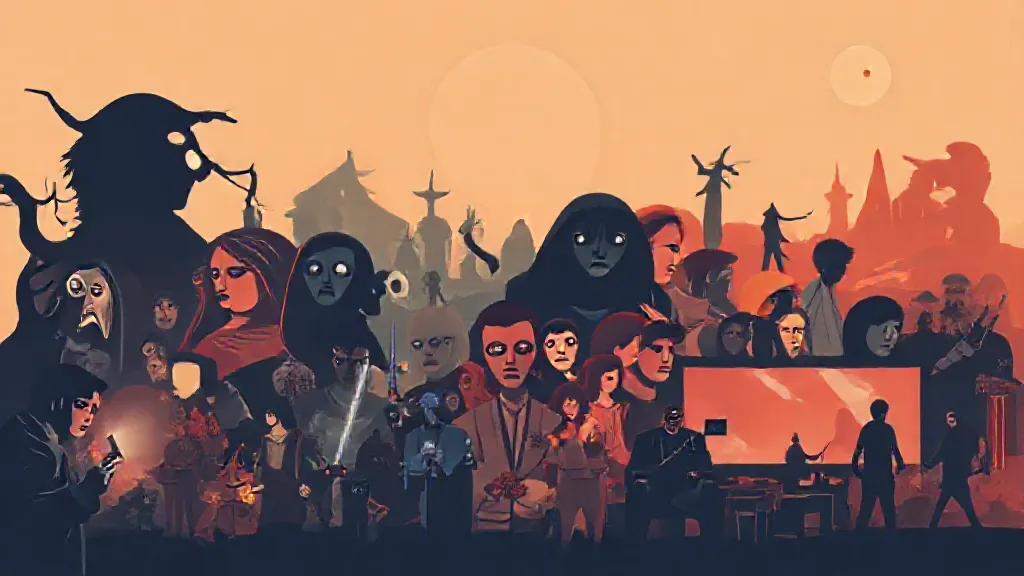Travel Tips
Lorem ipsum dolor sit amet, consectetur adipiscing elit.

Understanding the Distinctive Features and Impact of Anthology Shows
Anthology series have carved out a unique niche in the landscape of television and streaming entertainment, captivating audiences with their distinct storytelling formats. Unlike traditional series that follow a continuous narrative with recurring characters, anthologies present standalone episodes or stories, often with different casts and themes. This format not only offers a refreshing change of pace but also allows for a diverse range of storytelling that can challenge, entertain, and provoke thought in viewers.
One of the defining characteristics of anthology series is their ability to explore a wide array of genres and themes within a single season or series run. For instance, shows like "Black Mirror" delve into the implications of technology on society, with each episode presenting a new narrative that reflects contemporary anxieties. In contrast, "The Twilight Zone" used science fiction and fantasy to explore moral and philosophical questions, making it a timeless classic.
This genre versatility allows anthologies to attract a broader audience, as viewers can find stories that resonate with their interests without committing to a long-term narrative.
The unique structure of anthology series also fosters creativity among writers and directors. With the freedom to experiment with different styles, tones, and formats, creators can push the boundaries of conventional storytelling.
This is evident in series like "Fargo," where each season offers a new storyline inspired by the original film, yet retains the quirky and darkly comedic essence that fans love. Such creative liberties can lead to innovative storytelling techniques and memorable viewing experiences, setting anthology series apart from their serialized counterparts.
Moreover, the episodic nature of anthologies allows for a more varied pacing, which can enhance viewer engagement.
Each episode can be crafted to deliver a complete narrative arc, offering satisfaction and closure within a single viewing. This format is particularly appealing in today's fast-paced world, where audiences may prefer shorter, self-contained stories that can be enjoyed in a single sitting. Shows like "Love, Death & Robots" exemplify this trend, with each animated short presenting a unique tale that can be watched independently.
Anthology series also provide an opportunity for renowned actors and filmmakers to showcase their talents in diverse roles and narratives. By participating in a single episode or season, actors can take on characters that differ significantly from their previous work, allowing them to demonstrate their range and versatility. This is evident in series such as "American Horror Story," which features a rotating cast that embodies various characters across different seasons, creating a dynamic viewing experience that keeps audiences engaged.
The cultural impact of anthology series cannot be overlooked, as they often reflect societal issues and trends in a way that resonates with contemporary audiences. For example, "The Haunting of Hill House" not only delivers a chilling ghost story but also addresses themes of trauma, family dynamics, and mental health. By tackling relevant subjects, anthology series can spark important conversations and encourage viewers to reflect on their own lives and experiences.
In addition to their thematic depth, anthology series often benefit from a strong visual aesthetic and production quality. With each episode or season potentially helmed by different directors, viewers can experience a variety of artistic styles and cinematography that enhance the storytelling. This is particularly evident in shows like "The Alienist," where the lush period details and atmospheric visuals transport viewers to a different time and place, enriching the narrative experience.
Finally, the resurgence of anthology series in recent years, particularly on streaming platforms, highlights their enduring appeal in the entertainment landscape. As audiences seek out diverse and innovative content, platforms like Netflix and Hulu have invested in original anthology programming, catering to the demand for fresh storytelling. This trend not only underscores the unique position of anthologies in modern entertainment but also promises a bright future for this captivating genre.
In conclusion, anthology series stand out in the entertainment industry due to their unique storytelling format, genre versatility, and creative freedom. By presenting standalone narratives that explore a myriad of themes and styles, these series captivate audiences and foster meaningful engagement. As the landscape of television continues to evolve, the distinct appeal of anthology series ensures they will remain a vital part of our cultural discourse.